Register now for IMPACT 2023


Register now for IMPACT 2023
Registration is now open for IMPACT 2023: A free, virtual conference for educators of multilingual learners running December 4, 5, & 7.
The fourth annual IMPACT Conference is a free virtual event with multiple sessions running on December 4th, 5th, and 7th. Each year, IMPACT provides an opportunity for classroom teachers and administrators, curriculum and instruction specialists, education advocates, and more to participate in community-based professional learning with the common goal of furthering progress in multilingual education.
All sessions include time for Q&A with the presenters, plus registrants will automatically receive all recordings and session slides/resources at the end of the conference. In addition, educators have the opportunity to request a Certificate of Attendance for every session they attend which may be used for professional development credits as their district/school allows.
Register for the conference here, and learn more about this year's sessions and presenters below:
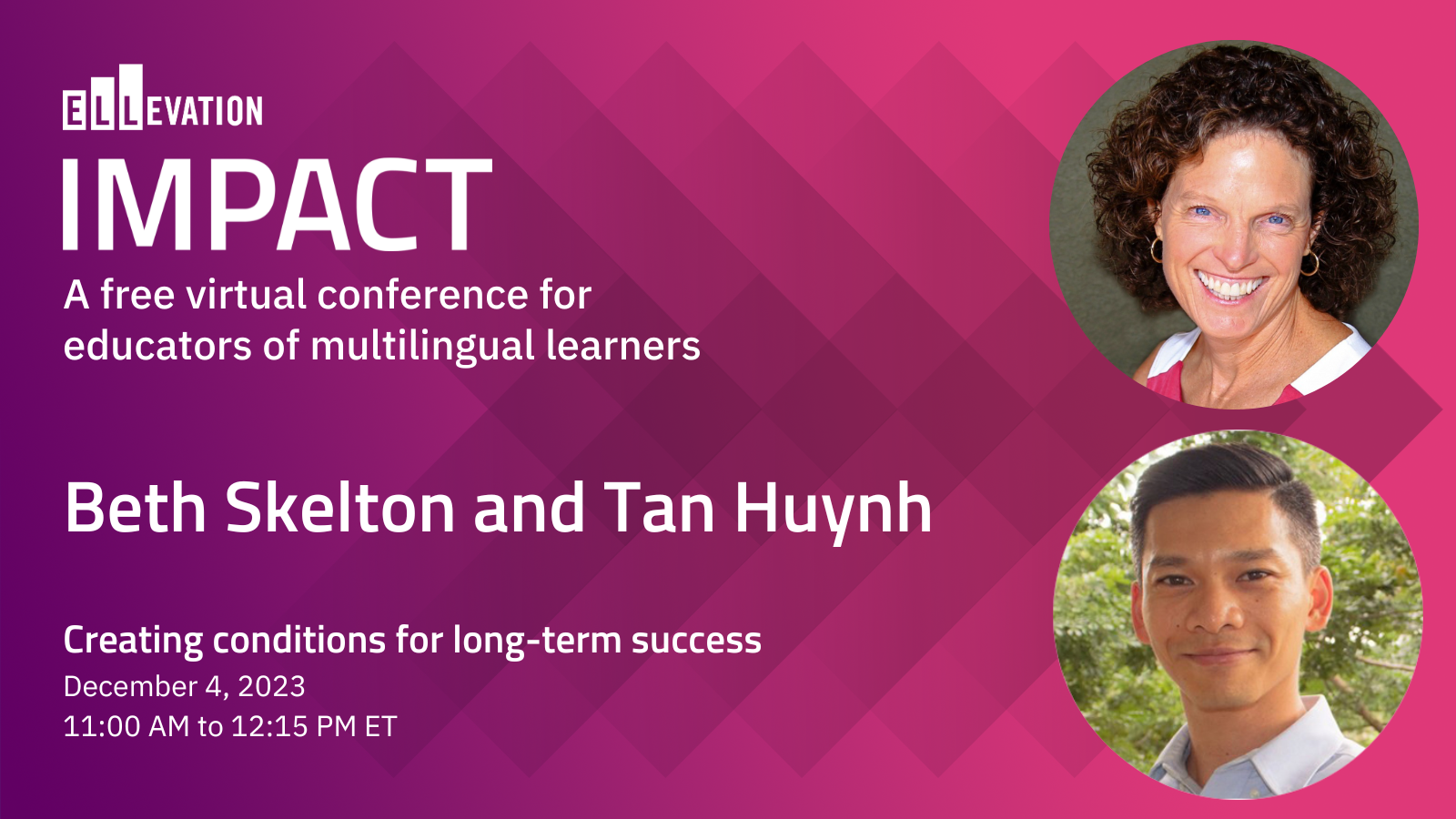
Let's shift beyond the limits of the long-term English learner (LTEL) label and embrace a new way of honoring secondary multilinguals’ valuable life experiences and academic potential. By focusing on experienced multilinguals’ strengths and what teachers can do, we will create the conditions for long-term success. Beth and Tan will share the conditions where experienced multilinguals can thrive based on their new book Long-Term Success for Experience Multilinguals.
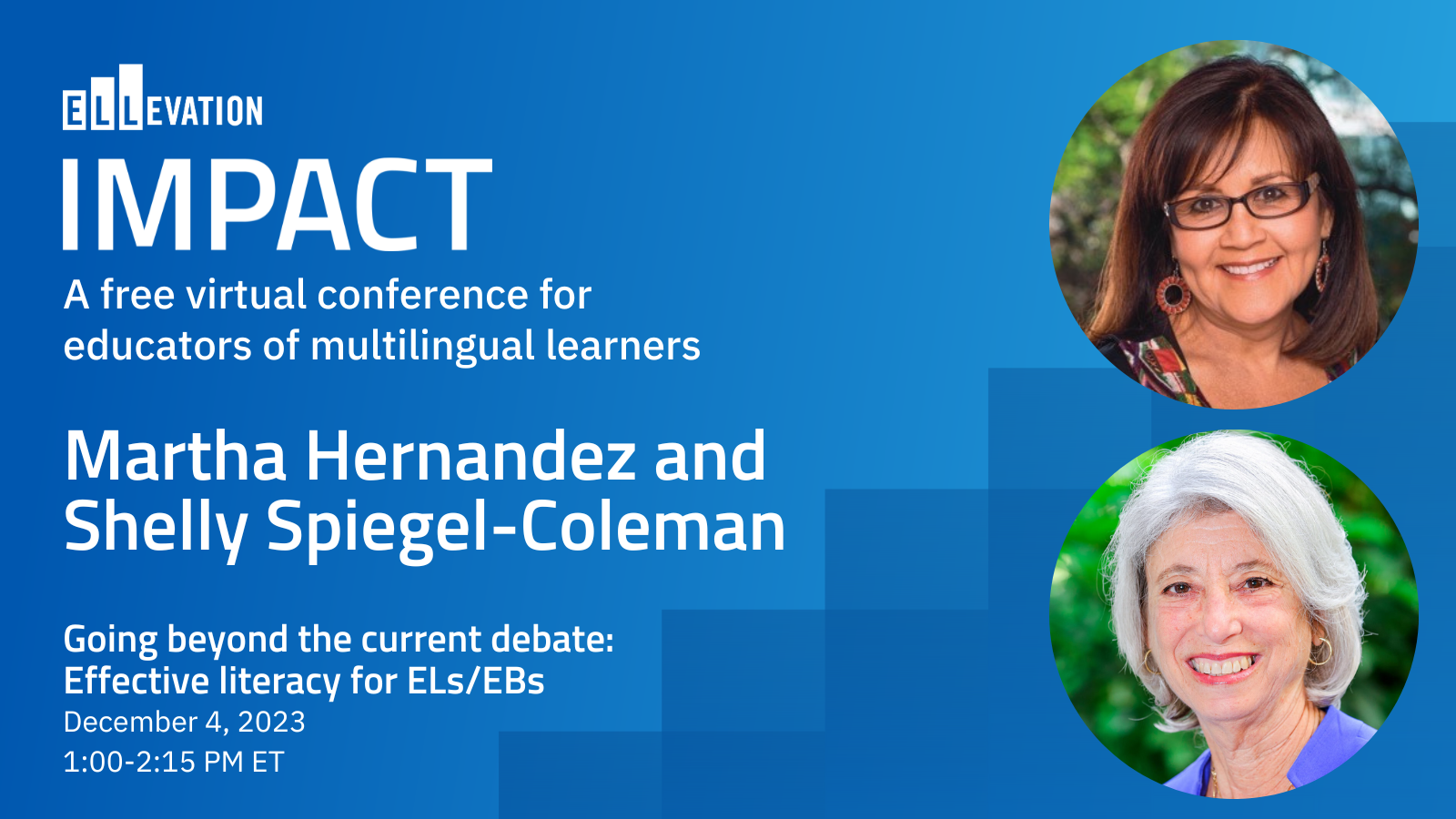
The National Committee on Effective Literacy (NCEL) uplifts research, policies and practices to ensure that English Learners/Emergent Bilinguals leave school as proficient readers and writers in English and preferably more languages. To go beyond the current debate, about the best literacy practices, the release of a joint statement with the Reading League reflects a unified commitment to evidence-based literacy practices and ensuring that all students, including ELs/EBs, have equitable access to effective literacy instruction. In addition, a review of The NCEL Literacy Study which captured the voices of educators across the nation describing how the Science of Reading has impacted their literacy program and instruction for EL/EBs will be presented including the findings with recommendations for informing high quality English and biliteracy instruction TK-3rd grade.
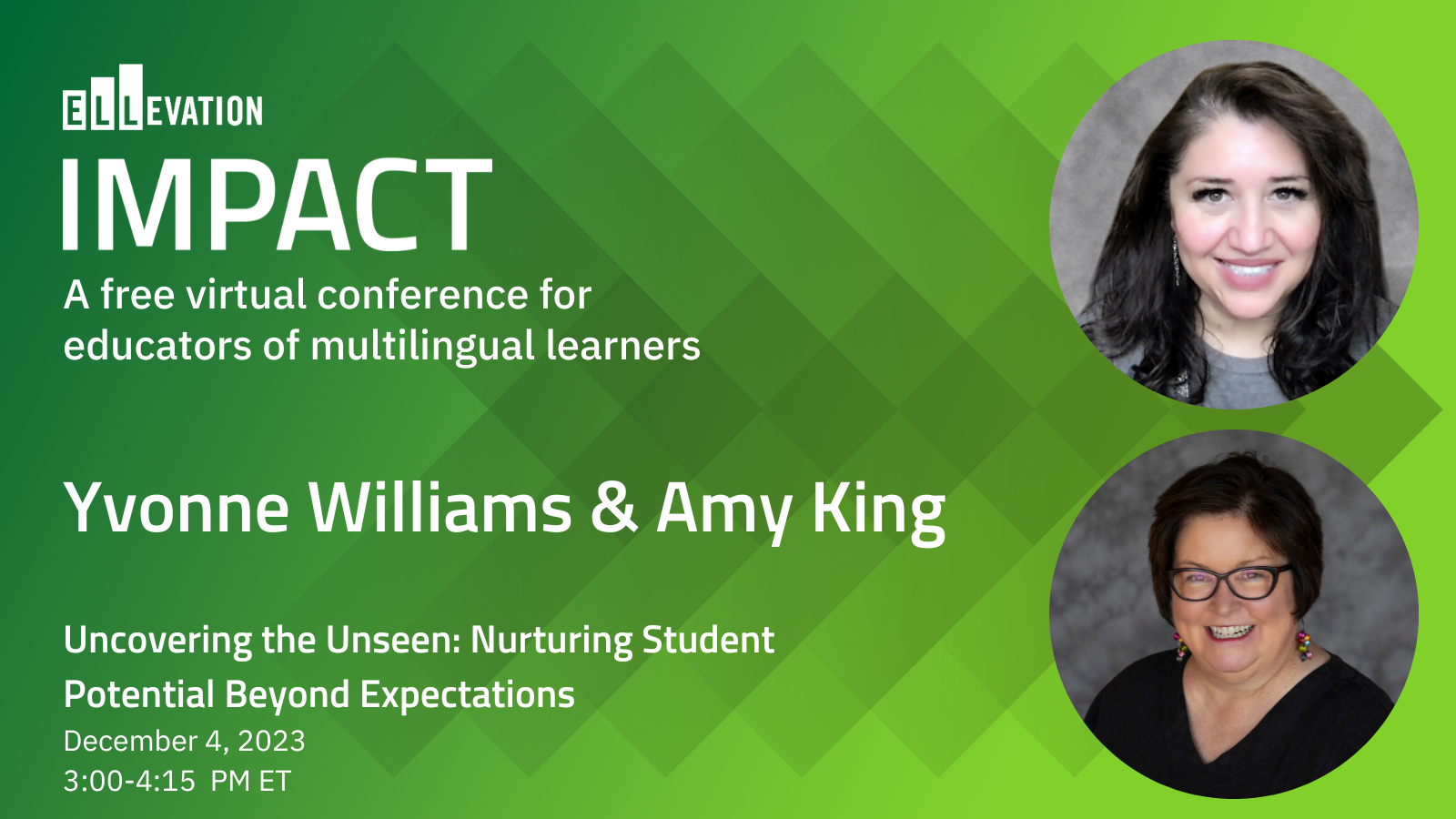
In this dynamic workshop we will explore how to nurture student potential beyond expectations. We will explore ways to uncover the unseen by encouraging self-advocacy, cultivating growth mindsets, and elevating student voices. This workshop is designed for educators who are passionate about making a lasting impact on their students' lives, fostering a culture of excellence, and guiding them towards fulfilling their greatest potential.
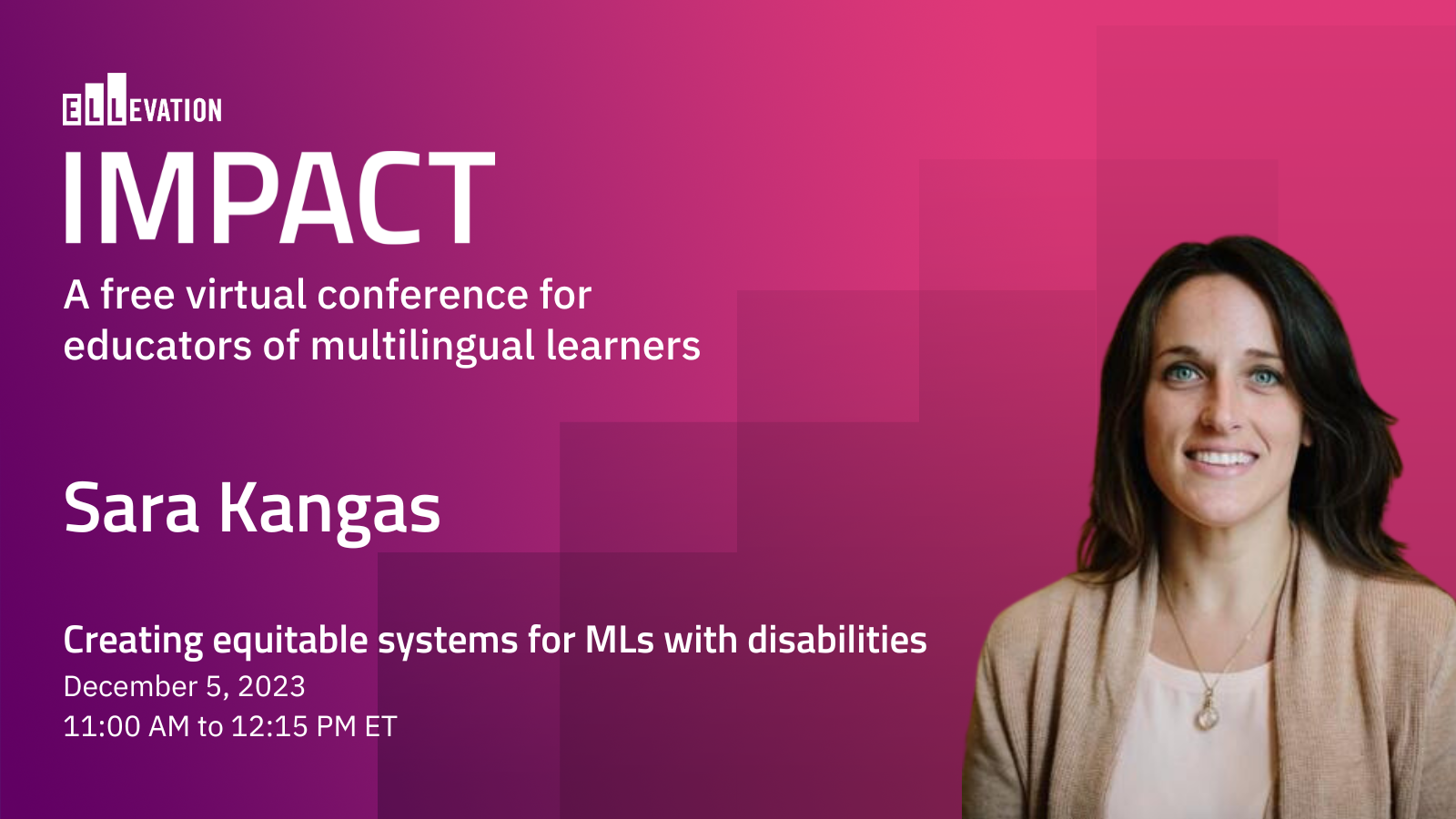
Focusing on K-12 contexts, this session will explore ways in which schools can create learning environments and systems that support both the linguistic and academic needs of MLs with disabilities. Participants will learn how educational equity for these students can be compromised in key processes, such as referrals, services, and IEPs, among others. Participants will be provided with resources and materials to support their equity-focused work for dually identified students.
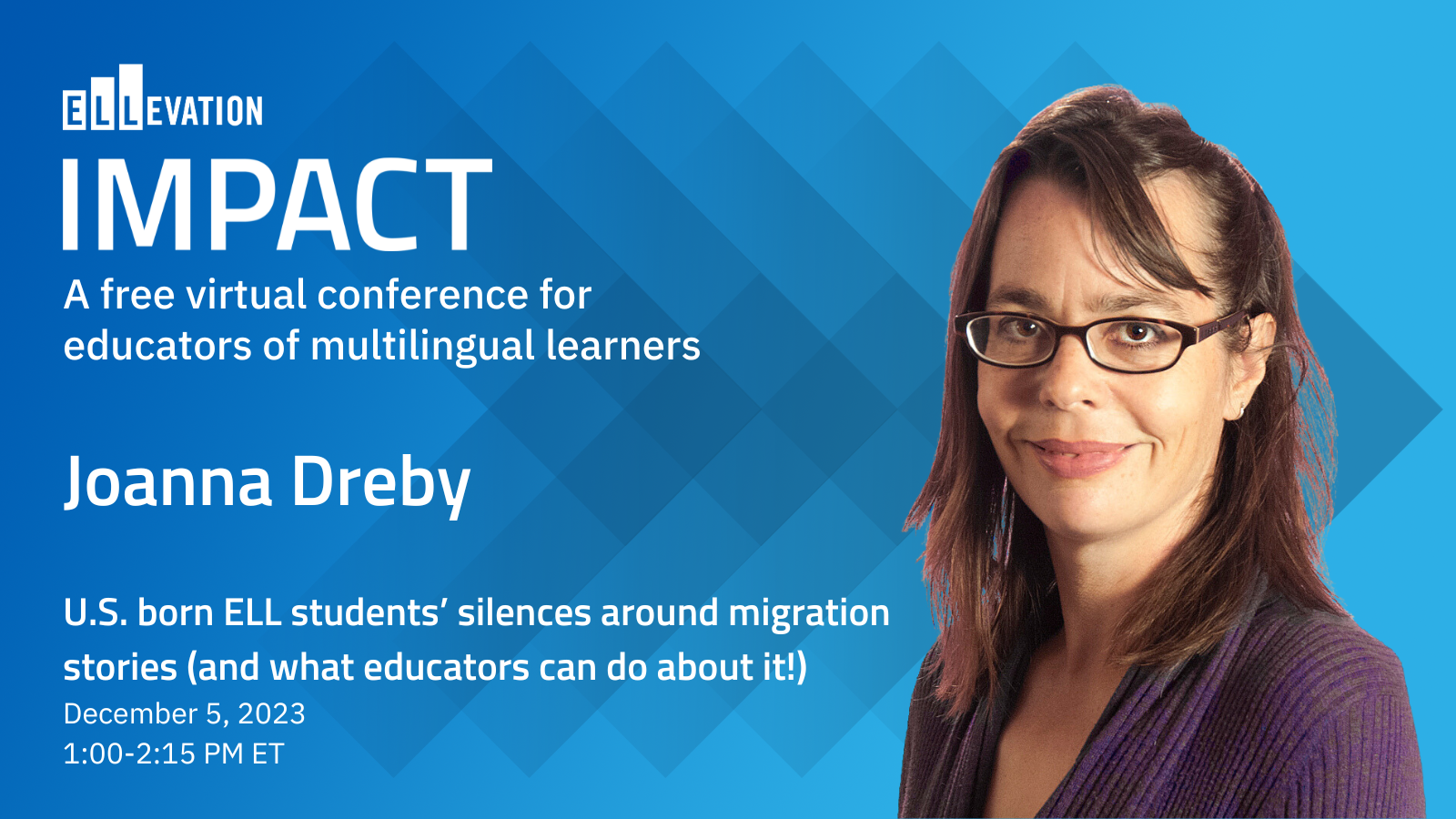
ELL populations include many U.S. born children with foreign-born parents. While children born abroad may talk more openly about experiences moving to the United States, oftentimes U.S. born children are reluctant to share migration stories for two reasons. First, they may have had traumatic experiences tied to immigration enforcement in their families. Second, they may harbor fears about the migration statuses of their parents, family members or members of their communities, and may silence their experiences to avoid triggering such anxieties. In this presentation, I will share some of the healing stories collected in a study of more than 100 young adults in New York with foreign-born parents. Doing so provides insight about the types of supports children need to voice their migration stories, and the ways educators and schools can better support U.S. born ELL students.
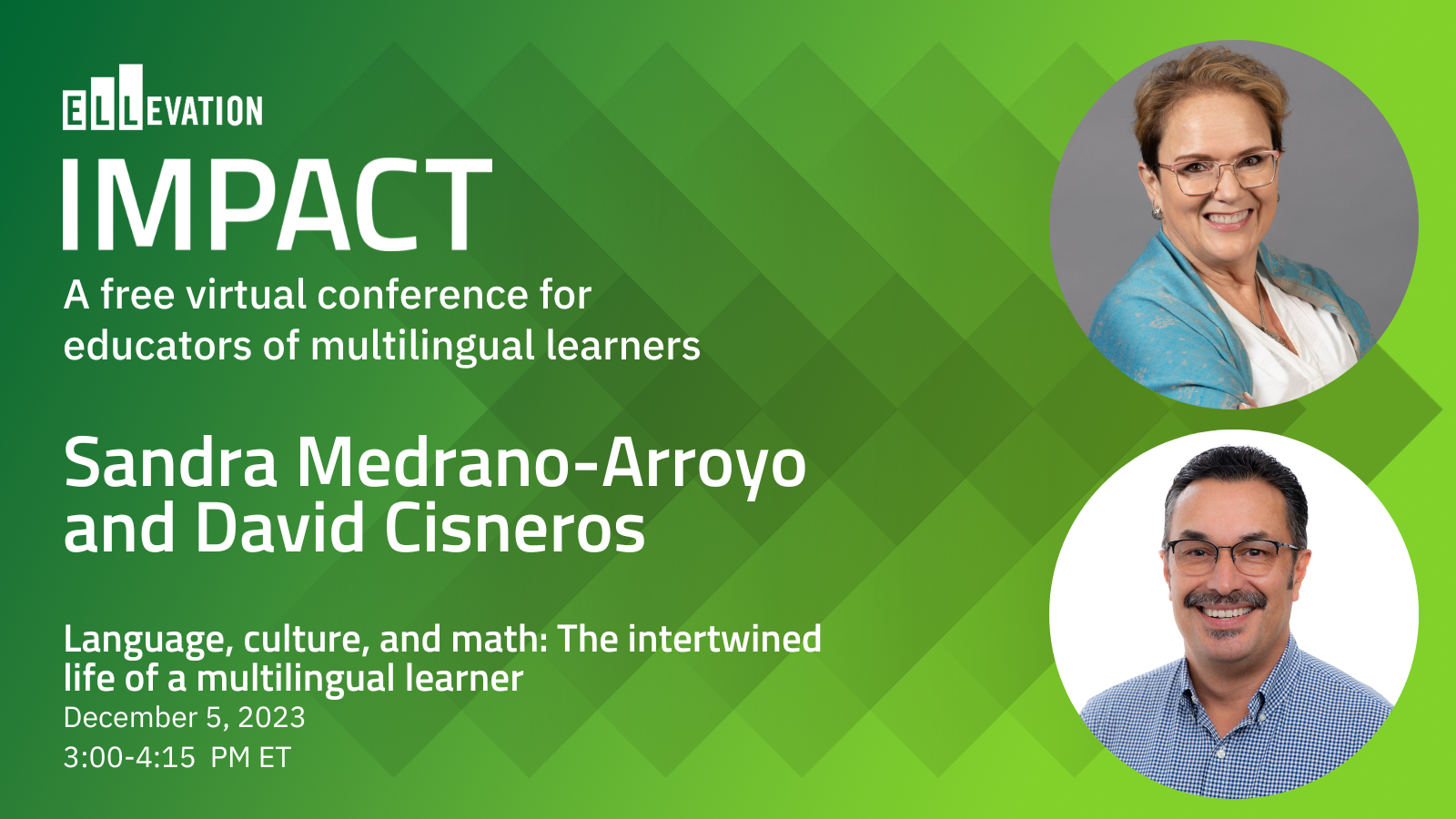
Language and culture can not exist without the other. But how can we tap into the cultural and linguistic assets our students bring to ensure they’re successful in math? Because of their bilingualism, math class is where multilingual learners can successfully apply their higher-level cognitive abilities to problem-solve complex scenarios in two or more languages. Share some time with us and learn math routines that will ensure student success!
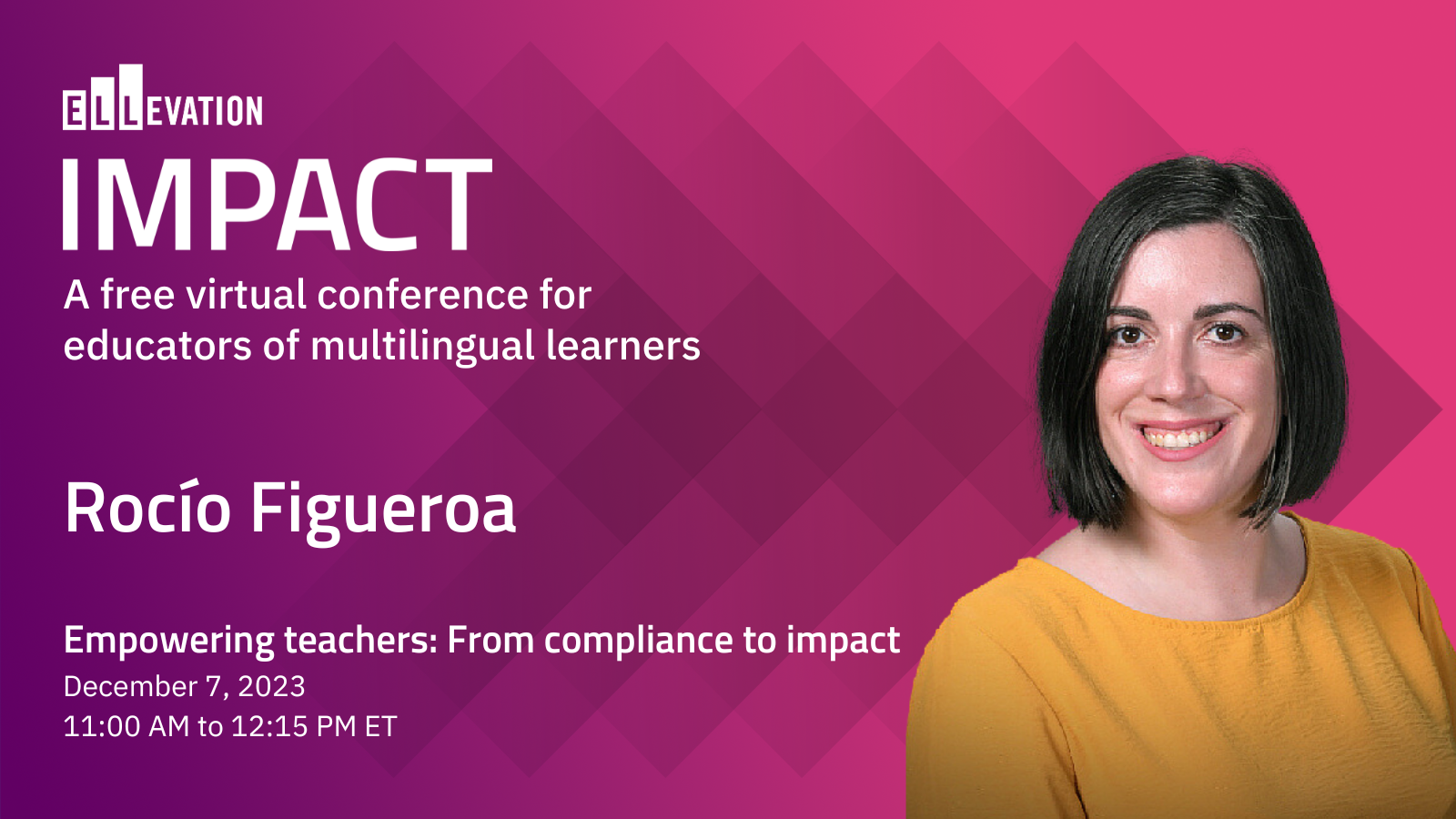
Throughout the year, teachers are asked to complete student monitoring forms. Although a lot of data is collected, educators are sometimes unsure of what to do with the information. Let’s dive into the data we collect using key questions that will empower classroom teachers to analyze and unpack how to best leverage those insights to impact classroom instruction in order to better serve multilingual learners.
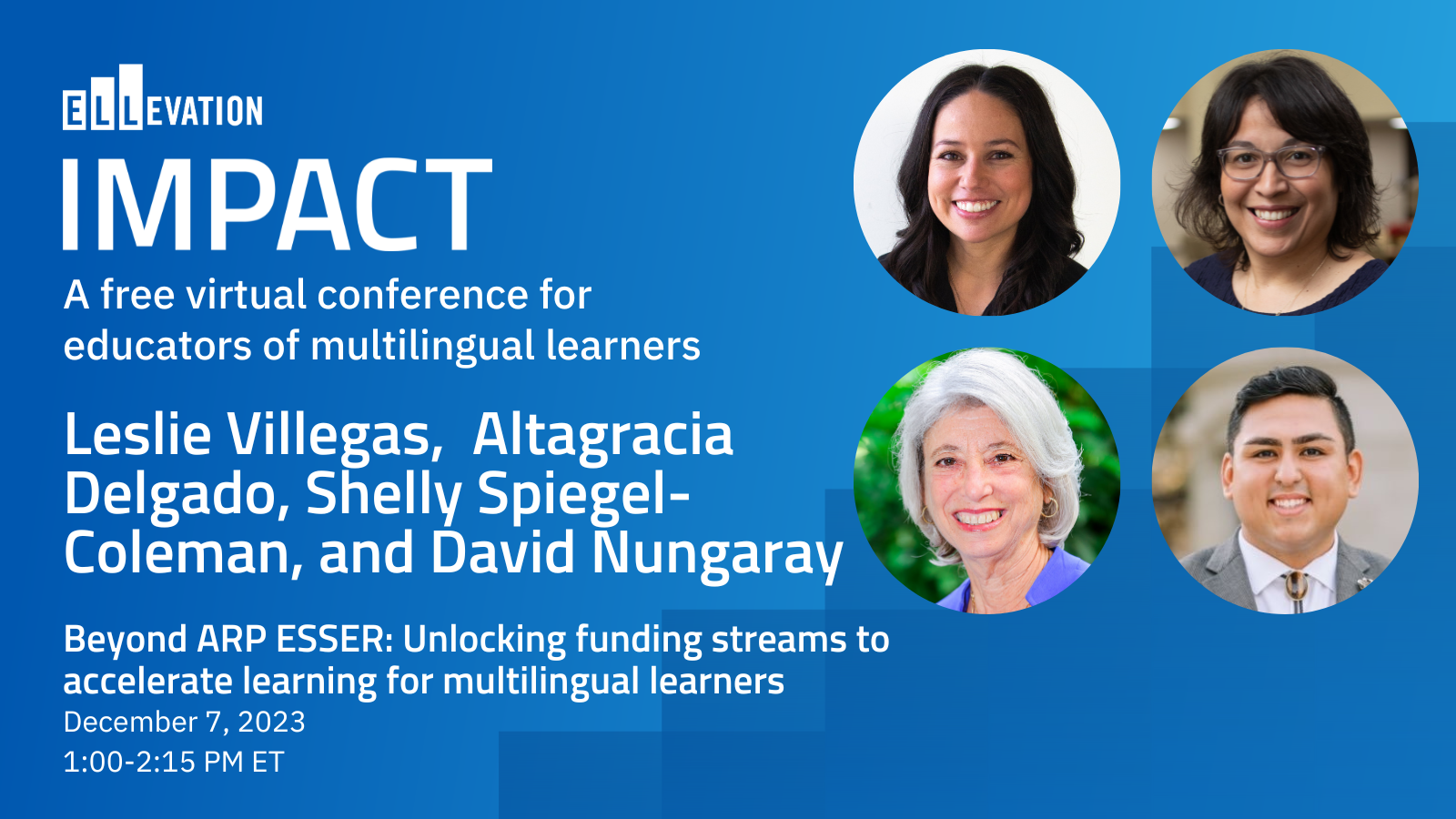
Several districts across the country are using ARP ESSER funds strategically to support multilingual learners and accelerate their learning. They’re also spending their funds to engage multilingual families and support educators who serve MLs. With the deadline to spend recovery dollars approaching in 2024, how can education leaders access ongoing sources of funding to meet the needs of MLs and communities? What lessons can we learn from how districts use their funding in service of their MLs? A panel of experts in the field will discuss how to tap local, state and federal resources and center MLs in the planning and budgeting process.
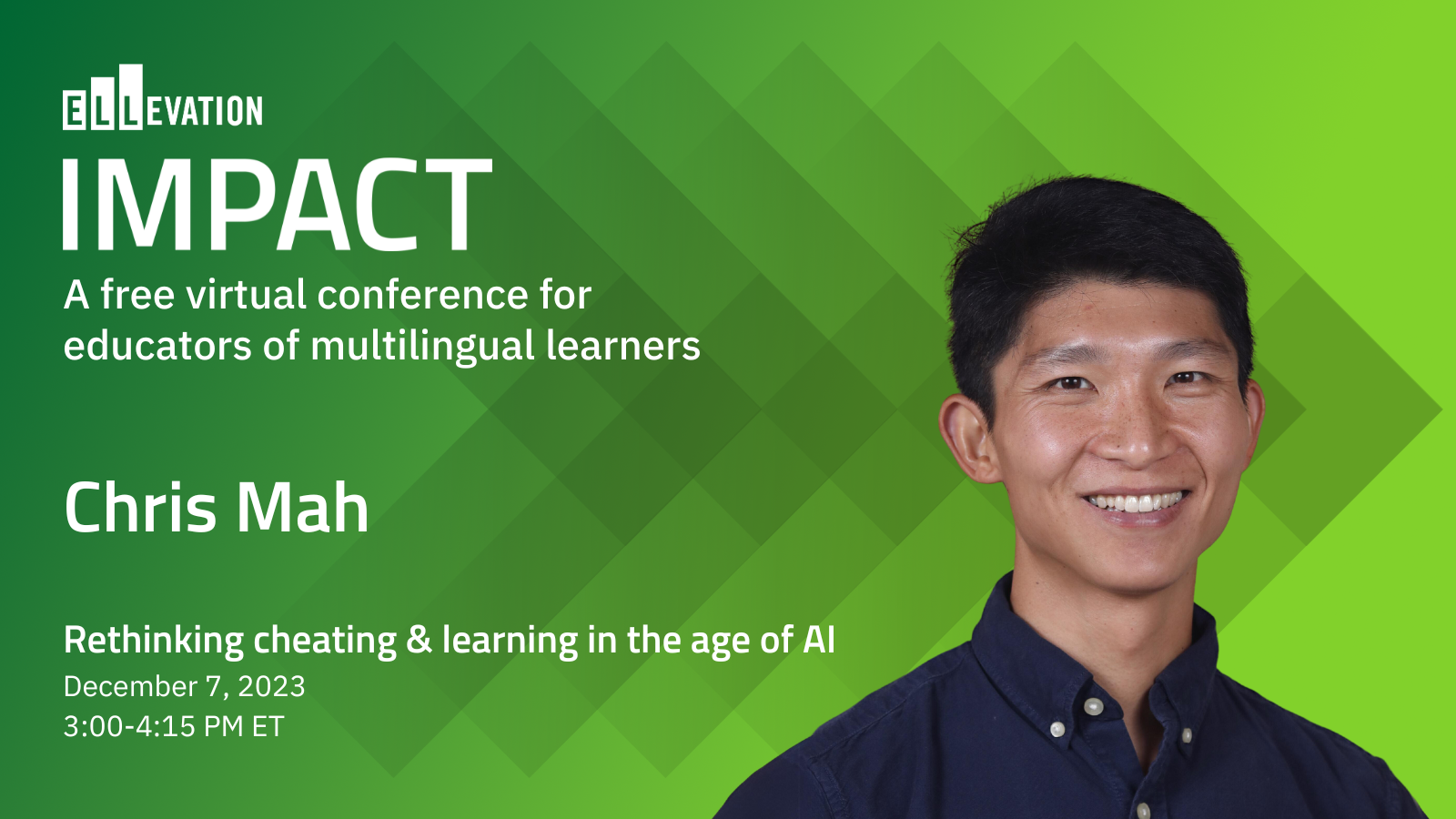
In this session, participants will engage in an interactive experience to deepen their thinking about cheating and learning in the age of Artificial Intelligence. The session will offer a framework for designing AI learning experiences that enhance rather than undermine learning. Participants will leave with resources for using AI to support student learning.